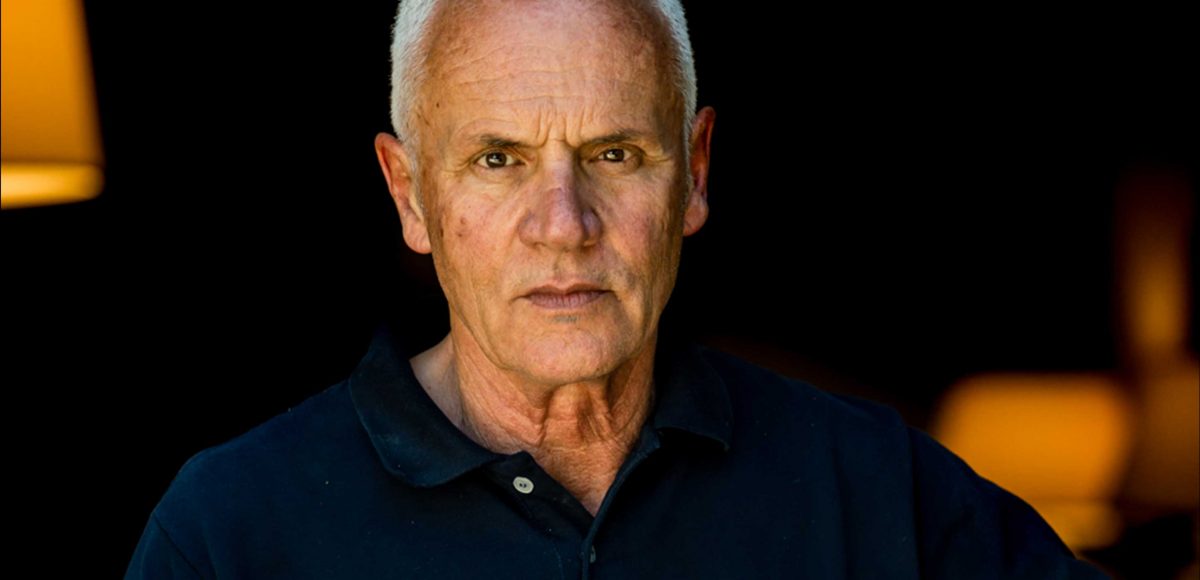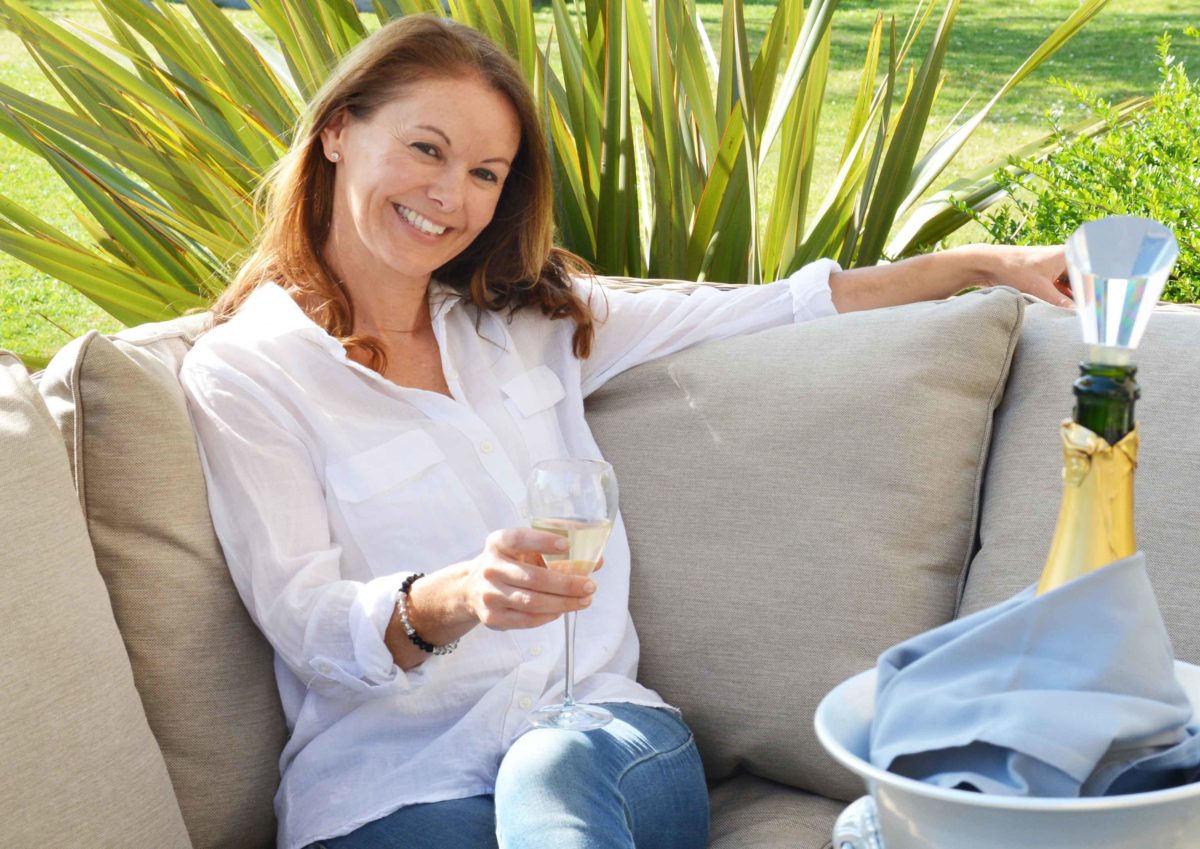I was invited to an intimate wine tasting at Gaggenau London in Marylebone by independent wine producer, Fattorie Dei Dolfi, a family-owned winery near Lari on the coast of Tuscany (not too far away from Pisa).
Though the owner Mr Giovanni Dolfie was not in attendance (he very rarely leaves his vines let alone hand over responsibility to anyone else to oversee them) you couldn’t help but feel that he was there in spirit. The tasting was held by Daniel Carnio, who has strong relations with Mr Giovanni Dolfie, the owner and wine maker at Fattorie Dei Dolfi and could tell has enormous respect for him and his approach to wine making. On the subject of relationships, it is worth mentioning that Mr Giovanni Dolfie had Dr. Giacomo Tachis as his mentor and teacher from the outset. For those in the wine business you’ll know that Dr. Giacomo Tachis was an Italian oenologist, known as the father of Super Tuscan wines by most. It was their relationship that made Mr Giovanni Dolfie start to explore how to unlock the potential of his family’s estate which has been in his family for over 100 years
With his expert advice and guidance Mr Giovanni Dolfie decided to throw in the reigns on his former career (he was a race horse trainer) to keep doing what his family had done in the past: make wine. With the help of Dr. Giacomo Tachis, some thorough reading of books published hundreds of years ago on agriculture and wine-making, he was confident enough to start work on the estate without hesitation. Together they experimented with micro-vinification for 15 years before deciding to bottle wines in 2008 and in 2010 when the wines were officially launched.
To give some background Mr Giovanni Dolfie’s mother was born into a family of wine growers who lived in the municipality of Lari. His father was a farmer which is who he gained his ability to truly read plants, fruits and weather patterns without the support of machines. His grandfather, Bendinelli Fornarino, was a relative of Don Giuseppe Bendinelli, the parish priest of Perignano, Lari. Don Giuseppe had a real passion for wine and viticulture. He shared with Mr Giovanni Dolfie’s grandfather great insight and secrets into wine making.
It is using these unique processes and techniques that Mr Giovanni Dolfi creates under 5,000 bottles across his portfolio per harvest making them highly attractive for investors and collectors of fine and rare Italian wines.While Fattorie Dei Dolfi may have been bottling its wines for little over a decade, every step of the journey is executed manually on the vineyard using organic and biodynamics techniques which means that you plan around phases of the moon, a technique used for hundreds of years.
This is what was thought of the three bottles sampled at the tasting:
The first wine, the Bianco Per Amore, Mr Giovanni Dolfie created for himself as a personal project. It has a production capacity of fewer than a thousand cases per year. Consisting of a mixture of Pinot and Chardonnay grapes this wine at every sip tastes different. Its flavour evolved as the tasting went on which was fascinating – becoming more bold and rounded. Suitable for all occasions.
The Artorius and Imeneus red wines are both created using the Prugnolo Gentile grape. Imeneus is a serious red with a complex flavour whilst The Artorius is a ruby coloured well-balanced wine that stood out the most. It is a wine produced in higher volumes than most of Fattorie Dei Dolfi’s selection.
We had the chance to interview Mr Giovanni Dolfie – this is what he had to say:
Regarding climate change, what have you experienced at Fattorie Dei Dolfi?
Anyone who grows vines knows about climate change first hand. In the past we enjoyed a perfect climate in Italy: right amount of rain in the spring for nutrition, dry warm days during summer until harvest, and a mild winter for the vines to rest well. Now it is all mixed up. It could rain for months non-stop, and then a drought could also last for months, even years. Cold places are now too warm, while warm places are just too hot. Hail storms and tornados, which never happened in Italy, are now common in late summer time. Fighting against the weather to get the best results from the vineyards is tougher than ever.
Which are the markets that you currently sell-in and have found Fattorie Dei Dolfi to be popular?
My wines are particularly enjoyed by experienced connoisseurs across Europe, the Middle East and Asia. One of my best customers is MMI from Dubai who has brought my wines into the first class cabin of Emirates Airlines, who are famous worldwide for their distinguished wine list.
On the rare occasion that you are not on the vineyard who takes over your role?
It rarely happens during the year as I am there all the time, I was even on the tractor when I was sick. I only leave for some holidays when the vines are properly tucked in and resting in the winter time. I was there to care for them before they go to sleep, and I am there when the time comes to wake up.
What time do you wake and finish the day?
I’ve never been an over-sleeper. Everyday 5-6 hours are just enough for me. I enjoy to be the only one on the road early in the morning as this is the best time of the day. I am in the vineyards mostly in the morning time, a brief lunch followed by a short nap to recover. In the afternoon we will continue the work in the cellar or sometimes back in the vineyards too. And sometimes when it’s necessary I might work from 5am all the way until 8pm. The weather these days is so unpredictable, so each day I have to make a lot of decisions what to do next. There is no such thing as a “routine day” in the life of a wine-maker!
Any eccentric techniques in place to encourage a good harvest?
People may not believe it, but all vines/plants ARE living things. To achieve the best results, all I do every day is to read signs from them whether they are doing well or not. If you are experienced and look carefully, each vine shows you their emotion, their stress level and their well-being through the condition of the vines. When I go to the vineyards I could almost call the name of each vine and they would answer back to me whether they are well today or not.
How do you treat yourself after the first harvest?
After the first harvest, my mind is already focused on the next! A lot of people think the spring marks the beginning of each year. For me this is too late. The winter before decides the results more than the current year. Treating myself? I rarely have the time!
How many people work with you including management?
I run an artisanal winery, and I don’t need bureaucracy or hierarchy. So there is no other management. It would be just me, and my staff, each of whom has the specified tasks in the company.
How large is your cellar and do you have any plans with it?
My cellar is not big as I only do artisanal wines, but it’s quite modern and has everything I need. I have a warehouse with air conditioning, temperature-controlled tanks and a bottling machine. I will update some of my tools and machinery or add some tanks in the near future so that we could work better and obtain better results. But I will not expand it to be big because that would mean the work becomes industrial. That is not my intention.
Can you explain in brief what old fashioned winemaking methods are?
Looking back into the history and finding wisdom from the past are the main teachings I received from Dr. Tachis. He asked me to read and study a lot of books published hundreds of years ago about agriculture and wine-making. A lot of “modern” ideas are everything but “modern”, such as natural wine-making, biodynamic, sustainable, respect to nature. These ideas have all been practiced by farmers in the old times when there was no chemicals or modern technologies. In my cellar I have cement tanks which could cool down the temperature during fermentation naturally; I have the old presser that would press the grapes very gently; I store my wines in the cellar according to the old ways.
What is your favorite wine making tip that you picked up by your father?
My father was not a wine-maker, but an extraordinary farmer, in particular a fruit businessman. He has a natural talent to identify fruits with perfect maturation. I think I have inherited this talent and I know when the grapes are ready for harvest without the support of the analysis machines. As you know, the best wines are made in the vineyards, not in the cellar. When I know that I have got perfect grapes, I am sure of the results to come.




